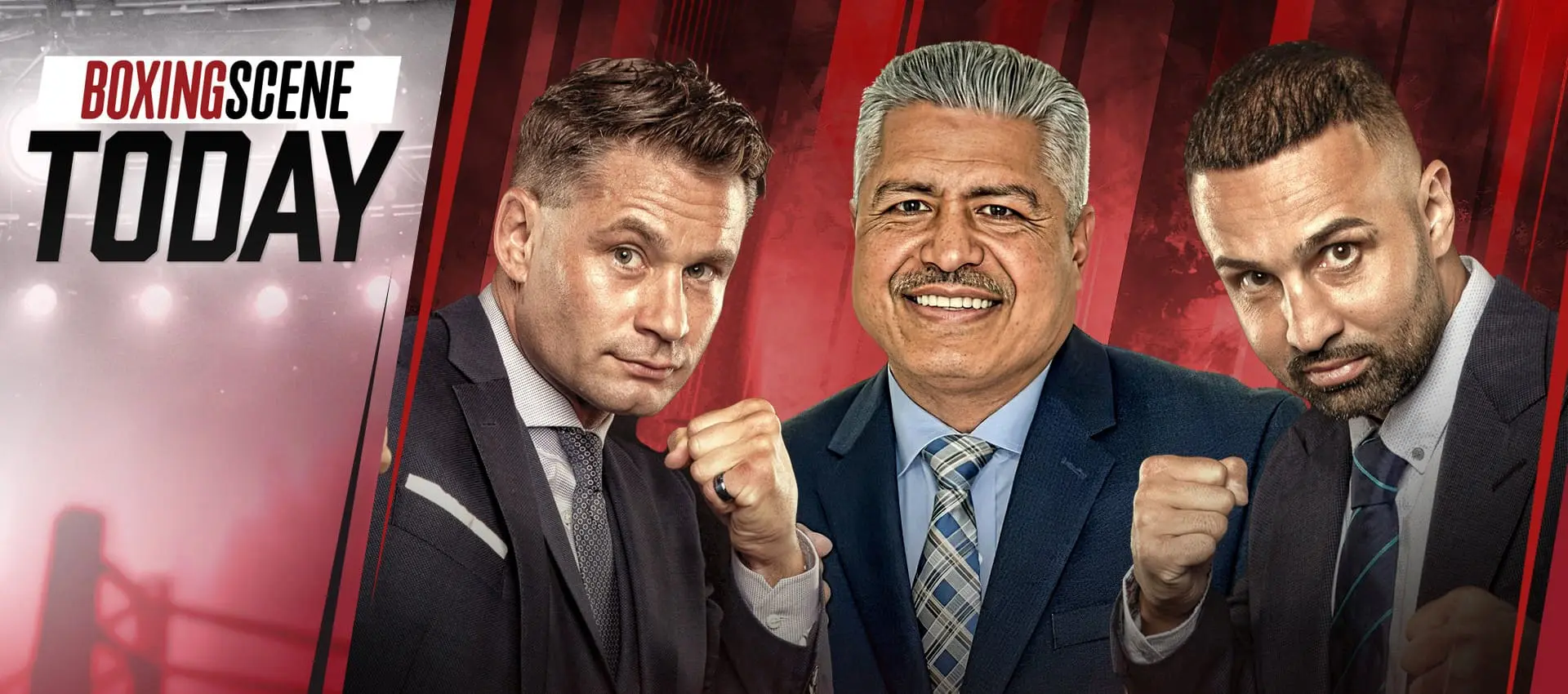
Saturday | Jan 24, 2026 | 4:00 PM EST
Raymond Muratalla vs Andy Cruz
Khalil Coe vs Jesse Hart
Omari Jones vs Jerome Baxter
Israil Madrimov vs Luis Salazar
DAZNLas Vegas, Nevada

Saturday | Feb 21, 2026 | 12:00 AM EST
Mario Barrios vs Ryan Garcia
DAZNLas Vegas, Nevada

Sunday | Feb 22, 2026 | 8:00 PM EST
Claressa Shields vs Franchon Crews-Dezurn
DAZNDetroit, Michigan
'BoxingScene Today'Talk Show
Pauli, Algieri, and Coach Garcia breakdown today's top stories

Upcoming episode - coming soon
Boxing Interviews
Interviews with boxing biggest stars










